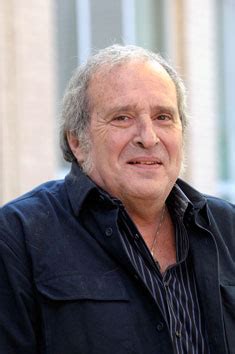January 21, 2024 - 09:25

I learned how to write in a neurobiology lab and it has defined my writing. During my time at Bryn Mawr College, Eleanor A. Bliss Professor of Biology, Paul Grobstein, taught me how to write. I found myself in his philosophy of science class that was co-taught with Michael Krausz, where I loved the discussions and was absolutely terrified of the submitting the writing assignments. His research extended across the fields of neurobiology, pedagogy, and philosophy of science. He was relentless in his inquiries into how mental processes contribute to learning and how learning processes contribute to the accumulation of human knowledge about the world. Grobstein wrote:
“Progress in science is not measured by increasing closeness to truth or to the real. It cannot be, because neither truth nor the real is a known location against which proximity can be measured. Progress in science has instead always been measured in terms of distance from ignorance. Science proceeds not by proving truth or reality but by disproving falsity, not by painting the right picture, but by painting a picture less wrong than prior pictures. This process, instead of objectivity or some other privileged access to reality, is the basis of the demonstrable power of science.”[1]
I found his description of science as getting things progressively less wrong to be a very empowering way of looking at accumulation of human knowledge about ourselves and the world. However, it was the alignment of his pedagogy with his philosophy of science that altered my life.
 Grobstein offered to help me apply to be an assistant at the K-12 Teachers Summer Science Institute at Bryn Mawr College in order to further explore my interest in education and philosophy of science. He turned the experience of writing the application materials into an opportunity to get things progressively less wrong, by means of revising what I had written over and over again. Grobstein gave me permission to resume writing with the mission of getting it progressively less wrong and the belief that I could do so. I always already knew that my writing was wrong in the sense that anyone without talent who dares to write is obviously doing the wrong thing, so his focus on getting things progressively less wrong allows me to write out of this starting place. If starting from a place of wrongness sounds self-defeating and depressing, then let me remind you of the legacy of my early attempts at learning to write. Making progress sounded wildly positive compared to my previous experiences. I think now, that it is actually a neutral position to take, because I found myself in knowing that I was not talented, and that by revising with the help of detailed and thoughtful feedback, that I could get it less wrong.
Grobstein offered to help me apply to be an assistant at the K-12 Teachers Summer Science Institute at Bryn Mawr College in order to further explore my interest in education and philosophy of science. He turned the experience of writing the application materials into an opportunity to get things progressively less wrong, by means of revising what I had written over and over again. Grobstein gave me permission to resume writing with the mission of getting it progressively less wrong and the belief that I could do so. I always already knew that my writing was wrong in the sense that anyone without talent who dares to write is obviously doing the wrong thing, so his focus on getting things progressively less wrong allows me to write out of this starting place. If starting from a place of wrongness sounds self-defeating and depressing, then let me remind you of the legacy of my early attempts at learning to write. Making progress sounded wildly positive compared to my previous experiences. I think now, that it is actually a neutral position to take, because I found myself in knowing that I was not talented, and that by revising with the help of detailed and thoughtful feedback, that I could get it less wrong.
Grobstein intervened in my writing process in order to help me make progress. I got the internship, stayed on in his neurobiology laboratory, and took my senior seminar with him so that he could be my thesis supervisor. Belonging to his laboratory, let me grow and develop as writer at faster rate than any other time in my life. My senior thesis was not brilliant, but it was the most ambitious thing that I could write at the time and I have continued to get those ideas progressively less wrong as my academic career has advanced. Whenever I feel a fixed mindset returning, I throw Grobstein on the page of the metaphorical writing task and it allows me to focus on the process. He appears throughout my doctoral dissertation and my first poetry collection as the ghost of the white rabbit, because a ghost is a consistent present absent. I took my MFA in Creative Writing from Kingston University and my Doctorate in Creative and Critical Writing from Cardiff University.
[1] Grobstein, Paul, “Getting it less wrong, the brain's way: Science, pragmatism, and multiplism.” Interpretation and its Objects: Studies in the Philosophy of Michael Krausz. Rodopi, edited by Andrea Ritivoi, Rodopi, 2003, pp. 153–166.
